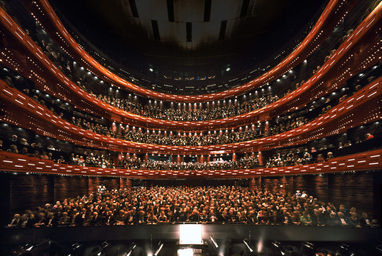
It’s pretty much a given for any theatre fan, when that announcement comes through, they are horrified, excited or both. Which announcement are we talking about here? It’s the announcement of when a beloved musical (or even play) is going to be turned into a feature film. No theatre fan wants to see their favourite show touched, or even, as many feel, “ruined”. Sometimes, things are better left as they are, and that includes stage shows. However, every now and then, an absolute hit comes along and leaves everyone speechless. Besides, the saying is that quite often, you can do so much more with film than you can do on the stage. Below, in no particular order, are eight stage shows that made the spectacular leap.
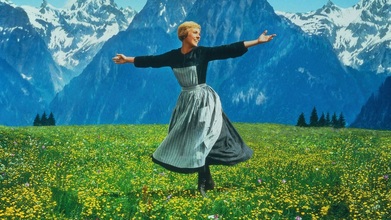
If there has ever been a successful stage to screen transition, it would The Sound of Music. The 1959 musical was the final collaboration by Rodgers and Hammerstein, as Hammerstein passed away from cancer nine months after the show premièred. Starting out on Broadway (with Mary Martin starring as Maria), the show premièred two years later on the West End, followed by the oh-so-famous film (with Julie Andrews and Christopher Plummer) in 1965. While the stage and film versions had some alterations from the actual story (Maria was actually hired to tutor only one child, the family escaped by train, and there were actually 10 children, to name a few changes), both stage and film version worked. By transferring the story to film, it allowed the creative team to do more with songs and script, and gave the audience greater visuals. The film has achieved cult following and garnered even more attention for the stage show. The Sound of Music has become one of the most popular and most revived stage shows of all time. In December 2013, NBC aired a live version of The Sound of Music with Carrie Underwood, Audra MacDonald and Stephen Moyer.
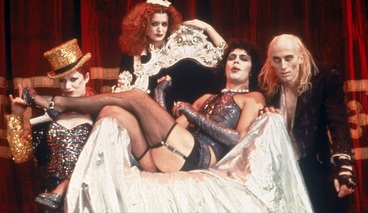
If there was any stage show that has had been successfully turned into a film, and a cult film to boot, it is The Rocky Horror Picture Show. Originally premiering in 1973 (thus marking the stage show’s 40th anniversary in 2013), Richard O’Brien wrote the show as an out of work actor and to keep himself busy. When O’Brien presented his work to an Australian director (Jim Sharman), Sharman immediately decided to take it on and give it a chance. Giving the show a chance proved to be a wise idea, it seems. After two years of performances, the stage show was optioned and was going to be turned into a film. The film was released in 1975, and is now considered to be the longest-running film in film history. While the film initially did not do well in major locations, apart from LA and the UK, it has since garnered a mass cult following and has become one of the most popular “cult” films of all time. What made this such a successful stage to screen transition are numerous reasons. One is that many of the performers from the stage show transferred to the film version, which helped maintain originality. It usually helps when a stage to screen film has a strong cast, especially if the film cast is in anyway familiar with the stage version. The songs and story were also largely unaltered, which also helped with consistency and originality. With these three factors, Rocky Horror Picture Show has become one of the most successful stage to screen transitions.
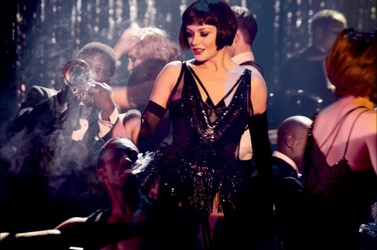
Well, if any show had it coming, it was Chicago. The Tony award (Broadway’s version of the Oscars) winning show is based on a 1926 play (of the same name), written by a reporter about actual crimes and criminals that she was reporting on. The show revolves around Velma Kelly and Roxie Hart, and revolves around the concept of “criminal celebrities”. What made the transition of Chicago from stage to screen so successful? Rob Marshall was hired as the director, and this was one of Chicago’s best decisions. Rob (a six time Tony award nominee) understands not only the art of film, but the art of the stage and that gave Chicago a step in the right direction. Secondly, they hired Broadway veterans, such as Taye Diggs and Christine Baranski, to be in the cast. If there is anything that works in the favour of a musical movie, it is having someone who has been either on The West End or Broadway. The rest of the cast hired (ie Richard Gere, Renee Zellwegger , Queen Latifah and Catherine Zeta-Jones - who won an Oscar for her portrayal as Velma) all fit their roles. The sets, costumes and orchestrations were basically just an added bonus. This would more than likely be considered a hugely successful stage to screen transition, seeing as the film won the Oscar for Best Picture.
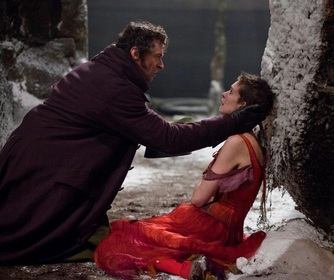
Les Mis is as musical as musicals get. Based on Victor Hugo’s massive novel, the show revolves primarily around Jean Val Jean, prisoner 24601, who has finally been released from jail after a long period of time, and is on the run from Javert, a strict, law abiding police officer, who is determined to make Val Jean pay. The show, a massive award winner, has been turned into numerous film and stage revivals. However, it would be the film version starring Hugh Jackman, Anne Hathaway, and Russell Crowe that would draw the attention of the world. The biggest thing running for this film was not only could most of the cast sing (Russell Crowe being one of the biggest surprises), but a majority of the cast had stage experience and Les Miserables experience, either directly or indirectly. Samantha Barks, who had played Eponine in the West End version, played the role in the film and was highly praised. Anne Hathaway’s mother had played Fantine in the touring version of Les Miserables, and Anne would go on to win an Oscar for that particular role. Anne, Samantha, Aaron Tveit, and Hugh had also had vast theatre experience, with Hugh winning a Tony in 2004. Many extras in the film had also been in the West End production, including Gina Beck, Hadley Fraser, and Alexia Khadime. Never has a musical film had such a massive cast that worked so very well together. It is a common saying amongst theatre and film goers that there is only so much that can be done on the stage. In this instance, it is very true. Another factor going for the film is that there was so much more detail throughout the film, both visually and musically. Thanks to little excerpts throughout the film, viewers had a better understanding of what was going on. If there was any film that completed the transition from stage to screen brilliantly, this would be the one.
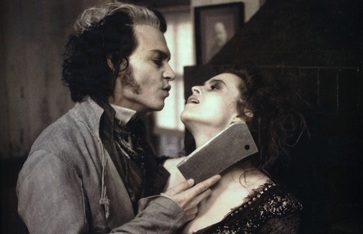
There was a moment of dread when this particular film was announced. Tim Burton was directing. Johnny Depp and Helena Bonham Carter had been cast - again. Adapted from Stephen Sondheim and Hugh Wheeler’s 1979 show of the same name, the film focuses on the legend of Sweeney Todd (real name Benjamin Barker), who is in search of revenge after he is falsely charged and thrown out of London, due to a corrupt judge lusting after Todd’s wife. Over a decade later, Todd returns and sets up a shop with Mrs. Lovett, who is known for having the worst meat pies in town. The two work together, with Todd working as a barber and murdering clients, including the judge who falsely accused him, and Mrs. Lovett turning the bodies into meat pies.
Why does the film work? The actors personally had to audition for Sondheim, who initially was extremely hesitant in having a film created of his work. If he didn’t approve, then the person was not cast, or a change was not made. Sondheim had say in what happened with the film, and in the end, was largely impressed with the end result. Secondly, while several of the cast members weren’t talented singing wise, their acting skills more than made up for it. Johnny garnered an Oscar nomination for his performance and won a Golden Globe. Helena’s performance as Mrs. Lovett was highly praised, due to her uncanny ability to play disturbed/crazy villains. This has become one of Tim’s most successful films to date. With a good cast, crew and especially with Sondheim’s input, this was bound to be a success.
These are just several of numerous stage to screen successes. Others include West Side Story, My Fair Lady and Cabaret, which have all become “legends” in their own right. Many can attribute their success to cast members, input and a good crew. Over the next few months, films based on stage shows will be released, including Into the Woods and Jersey Boys. Only time will tell, however, whether or not these films will follow in their predecessors steps.

 RSS Feed
RSS Feed
